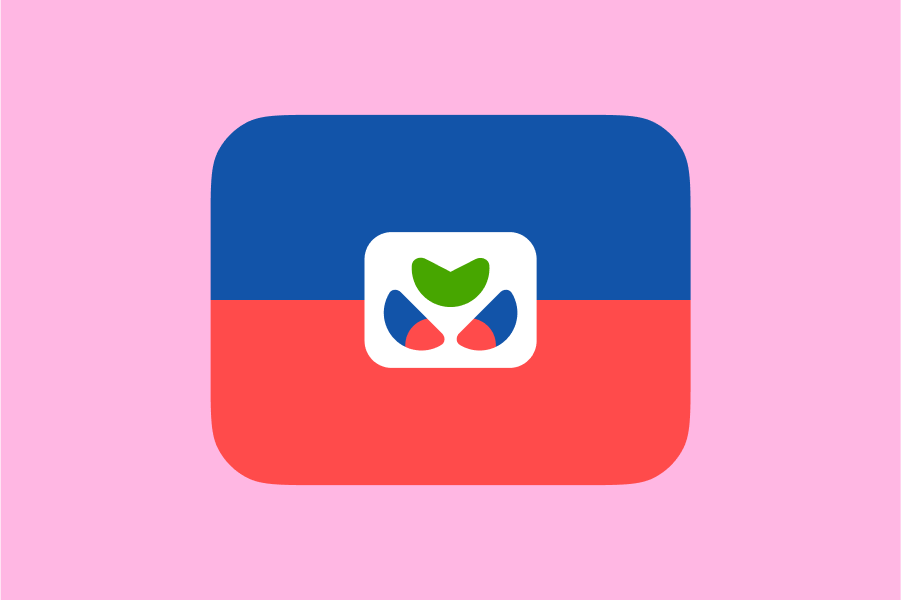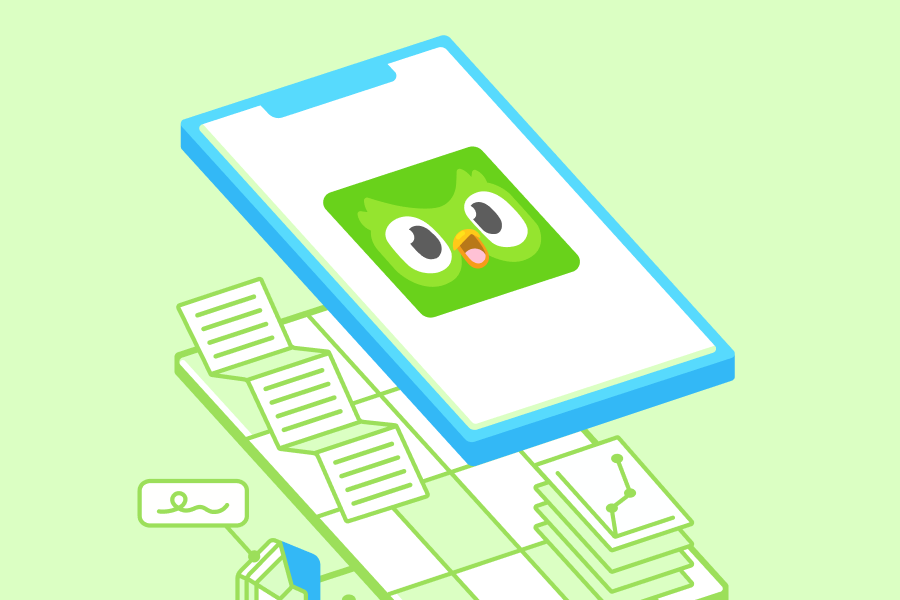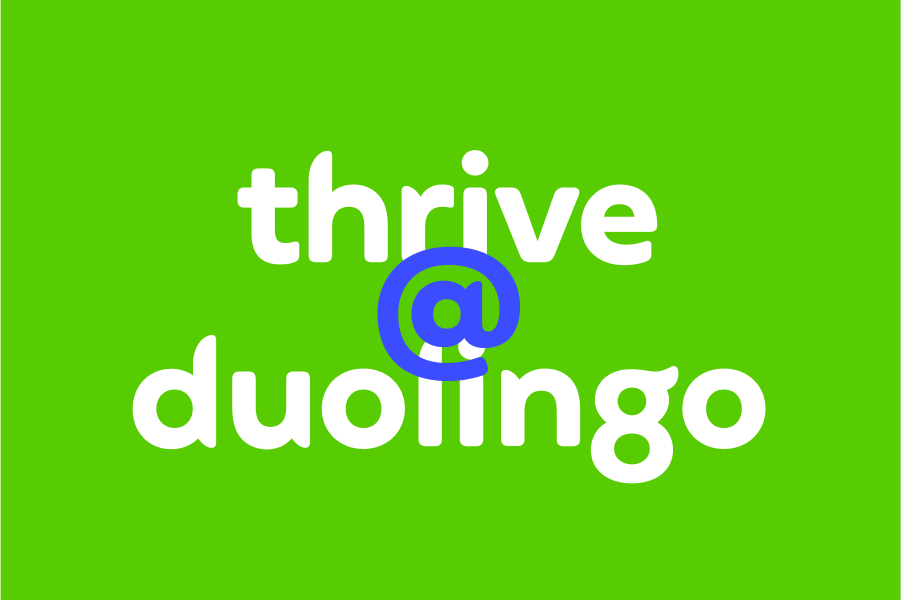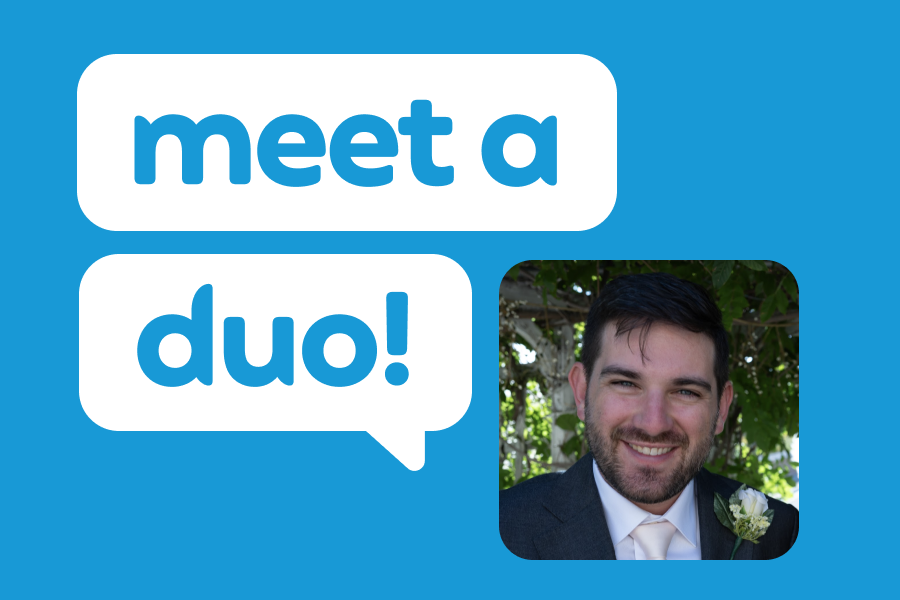Jonas Desir was excited to learn about Duolingo’s Haitian Creole course that debuted in February 2022. Jonas was adopted from Haiti when he was six years old and raised in Queensland, Australia. Today, he’s in contact with his birth family in Haiti and says the app will help him connect with them on his next visit.
“I was adopted by a white family and there were not many Haitians in Australia at the time. As a result, I lost all my Creole. I was excited when the program came out because it’s going to give me an advantage the next time I travel to Haiti and visit my birth family,” Jonas says. “Being able to speak Creole helps me better connect with both my family and my country.”
Located east of Cuba and Jamaica, Haiti is a mountainous Caribbean country that shares the island of Hispaniola with the Dominican Republic, and the country has two official languages: French and Haitian Creole. Because of French colonization, French is often used in formal settings, like schools and courts. But Haitian Creole is more widely spoken, especially in rural areas, with over 90% of the population speaking only Creole. Though Haitian Creole shares some vocabulary with French, the language is actually a mix of French, Spanish, Taino, and West African languages with its own unique grammar and structure.
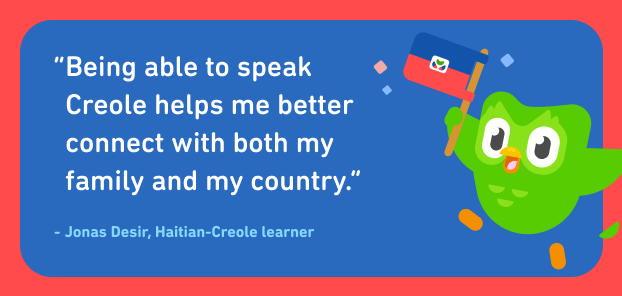
Though Haitian Creole is the most commonly used language in Haiti, it was historically preserved through spoken word and informal teaching, and the lack of institutionalized teaching and learning resources makes it harder for those who didn’t grow up speaking the language to learn it.
This was the case for Rose-Stella Pierre-Louis. Though she grew up speaking Creole, she had a hard time retaining the language as an adult. She now lives in California, but was adopted from Haiti by a Haitian-American family and grew up in New York. Though her adopted family spoke Creole to her, she says it was harder for her to keep up her Creole when she moved to Sacramento. Now, Rose-Stella has been using the Duolingo app for a few months and says the Creole program has also helped her connect her children to her first language.
“My kids started using the Creole program on Duolingo about two months ago. Living in Sacramento, I don’t get to speak with any Haitians, and I don't have opportunities to expose my kids to Creole besides when I make a few comments to them here and there. So using the app has been a fun way for them to engage with my mother tongue.” The motivation to connect with family goes beyond Haitian-Creole—at Duolingo, we’re seeing more and more learners motivated by family and culture when studying a new language.
“I want my kids to be familiar with the language,” says Rose-Stella. “My Haitian heritage is so important to me. To be the language of freedom fighters and abolishers of slavery is powerful. The least I can do is ensure that my culture and language carry on in my kids.”
And finally, Magalie Wilkerson is another Haitian adoptee who has found the Creole program integral in connecting her back to her Haitian culture. Like Jonas, Magalie was adopted by a white family and didn’t grow up speaking Creole. She initially used the Duolingo app to learn Spanish and was delighted when she found out Creole was added!
“I have been waiting years for Duolingo to have Haitian Creole on their app,” she says. “I’m using Duolingo to help me have a daily habit of learning Creole. It’s easy to use, I can do it anywhere and anytime. It's fun and challenging at times, and the app also keeps you on track by reminding you to study.”
For many Haitian adoptees, access to an easy-to-use app to learn Creole and converse with other Haitians has been life-changing.
“Learning Creole has definitely helped me connect with both my family and culture. I want to be fluent in Creole because it does get challenging to have deep conversations when I only know basic Creole.” Wilkerson adds, ”Learning Creole for me means connecting to my Haitian heritage that was stripped from me through adoption. Now I feel more comfortable speaking it and can connect more fully with my birth culture and my birth family.”
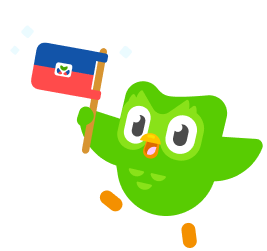
With our Haitian Creole course, the language can be passed on to even more generations. Like Jonas, Rose-Stella, and Magalie showed us, learning Haitian Creole can be engaging and fun! Try Haitian Creole for yourself!
